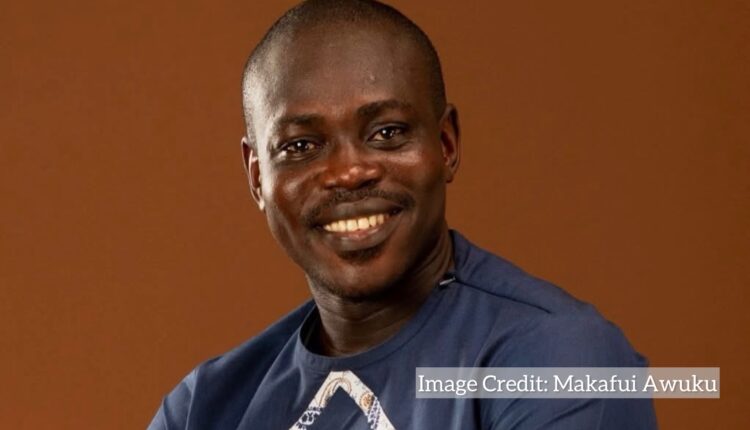One Man’s Trash is Ghana’s Treasure: Desks Made from Water Sachets Aid Schools
Written By Evelyn Van Der Puije
In Ghana, where plastic pollution clogs drains and many schoolchildren are forced to study without desks, one man is offering an inspiring solution that addresses both challenges at once. Makafui Awuku, a social entrepreneur and environmentalist, has developed an innovative method to recycle discarded pure water sachets one of the country’s most common forms of plastic waste into strong, functional school desks.

The Man Behind the Movement
Makafui Awuku is the founder of Mckingtorch Africa, a social enterprise focused on sustainability, waste recycling, and climate change advocacy. His background in communication and passion for environmental protection led him to explore how Ghana’s growing plastic waste problem could be turned into opportunity. His breakthrough came when he discovered a way to melt and compress used plastic sachets into durable panels, which could then be shaped into furniture.

Turning Trash into Tools for Education
Each school desk crafted by Awuku’s team uses around 250–300 pure water sachets, which are collected from waste sites, cleaned, and processed. The final product is water-resistant, lightweight, and durable ideal for harsh classroom environments. The desks are designed to seat two to three students and are being distributed to public schools that lack adequate furniture, especially in underprivileged communities.
A Win for Schools and the Environment
The initiative directly addresses Ghana’s plastic waste crisis, where millions of pure water sachets are consumed daily and often discarded improperly. At the same time, it helps bridge the gap in classroom infrastructure. Many public schools in rural and urban Ghana lack basic learning materials, including desks and chairs, which has a measurable impact on student attendance, performance, and dignity.

By turning waste into educational tools, Awuku is providing not just environmental relief but also a better learning experience for thousands of students.
Community Impact and Youth Engagement
Beyond furniture production, Makafui’s work has created jobs for waste collectors and young artisans. His project also includes youth education programs to raise awareness about recycling, climate change, and environmental responsibility. Mckingtorch Africa runs workshops in schools to show students how sustainability can be a driver of innovation and economic opportunity.
Recognition and National Interest
Awuku’s work has gained both national and international recognition. He was a finalist in the UN SDG Action Awards, and his innovation has drawn the attention of government agencies and private donors. Ghana’s Ministry of Education and Environmental Protection Agency have expressed interest in collaborating to scale the project, especially for schools in remote areas.

Future Plans: Scaling Up for a Greener Ghana
Makafui Awuku aims to expand production facilities, employ more workers, and reach hundreds of schools across all regions of Ghana. He also plans to export the model to other African countries battling plastic waste and educational infrastructure deficits. With the right support, his vision could inspire a continent-wide movement toward sustainable development.








